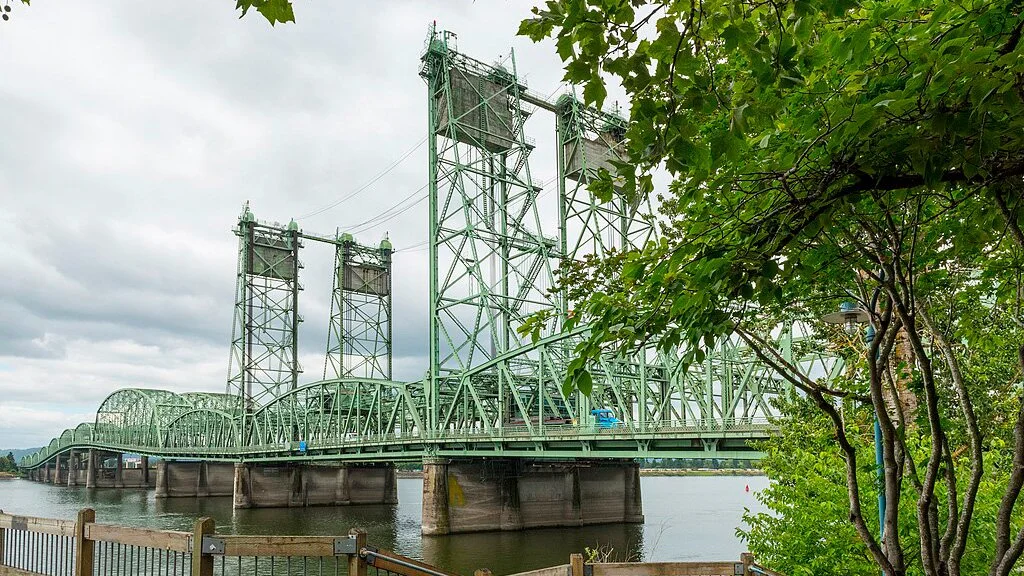In this special episode of the Strong Towns Podcast, Chuck talks about the ways housing fraud manifests, how it gradually saturates the market and how it’s connected to the current housing crisis.
Read MoreJane Jacobs identified four key ingredients for good urban settings: compact development, varied buildings, mixed uses and short blocks. Here's why these ingredients are important and how certain regions in the U.S. might face more difficulty in implementing them than others.
Read MoreIn this episode of the Strong Towns Podcast, Chuck discusses municipal finance with Michel Durand-Wood, a longtime Strong Towns contributor and local budget aficionado.
Read MoreThe traffic engineering profession has three responses to fatal crashes: blame the driver, call for more engineering or conclude it was an accident that couldn't be prevented. These are understandable human reactions. Here's why they're also inadequate and what should be done instead.
Read MoreNorth America's built environment makes it too dangerous for most children to walk to school. Edward Erfurt, Strong Towns' director of community action, knows that from experience. Here's how he's planning to make the street outside his son's school safer.
Read MoreJennifer Krouse is a real estate strategist and the CEO of an architectural publishing house. She joins the podcast today to talk about the ways stock plans make incremental development easier and less risky, the art of placecraft, and the importance of places being productive.
Read MoreCar companies have been talking about making cars a third place for years, and the concept has been engrained in North American culture for even longer. But can cars actually function as a third place? More importantly, should they?
Read MoreIn this episode of Upzoned, co-hosts Abby Newsham and Chuck Marohn talk about the challenges of building an Olympic Village and then repurposing it after the Games are finished.
Read MoreThe practice of "grandfathering in" old buildings — letting them exist without meeting current building codes — is a good one. However, buildings lose this protected status if their owners perform renovations or additions, resulting in many buildings declining or sitting empty. It doesn't have to be this way.
Read MoreIn Florida, flooding from Hurricane Debby exposes how the suburban pattern of development can worsen natural disasters and make it more difficult for residents to evacuate.
Read MoreIn this episode of the Strong Towns Podcast, Chuck is joined by Eric Goldwyn, a leading urban scholar and transit expert, to discuss the benefits of high-speed rail and how it could brought to the U.S.
Read MoreThe U.S. is in a massive housing bubble fueled by widespread fraud. With banks incentivized to look away and Wall Street and Washington incentivized to keep housing prices artificially high, a bottom-up approach is the only hope for bringing sanity back to the housing market.
Read MoreGreenfield development may be appealing to people who are fighting the housing crisis, especially on cheap rural land. But if these developments are the only places with housing affordability, people who can't drive — whether due to age, disability, or finance — are out of luck. That's not a real solution.
Read MoreSeth Zeren, a neighborhood developer and founding member of Strong Towns, returns to The Bottom-Up Revolution to talk about the political side of incremental development and how to deal with issues like balancing needed development with increased property taxes.
Read MoreIf you could ask anything from a downtown redevelopment project, what would it be? For a lot of people, it’s a place to sit. This may be surprising to some, but public seating plays an important role in creating prosperous communities. Here are a few of the reasons why.
Read MoreIndianapolis officials are encouraging residents to be involved in improving the city through a number of initiatives. In this Upzoned episode, Chuck and Abby discuss the benefits of these programs and the growing pains cities will face as they make this kind of positive change.
Read MoreThe Interstate Bridge Replacement project, which is tasked with replacing a bridge that connects Washington and Oregon, is facing alarming delays, cost escalations and seemingly deceptive behavior from officials. These problems are symptoms of broader issues in North American transportation spending.
Read MoreWashington's Department of Transportation recently reported that they’re weight restricting another bridge because it’s becoming dangerously old. This is a symptom of a problem that stretches across North America: grossly misplaced priorities. It's time for a serious reevaluation of transportation spending priorities.
Read MoreIn this episode of the Strong Towns Podcast, Chuck takes a look at a recent fatal car crash that took place in Ontario, and the response from local law enforcement on Twitter/X.
Read MoreIn many cities, officials primarily rely on traffic enforcement to prevent car crashes and fatalities. This is unsustainable and ineffective. If city officials want to make Vision Zero a reality, instead of a slogan, they must address the systemic issues that put everyone at risk.
Read More



















